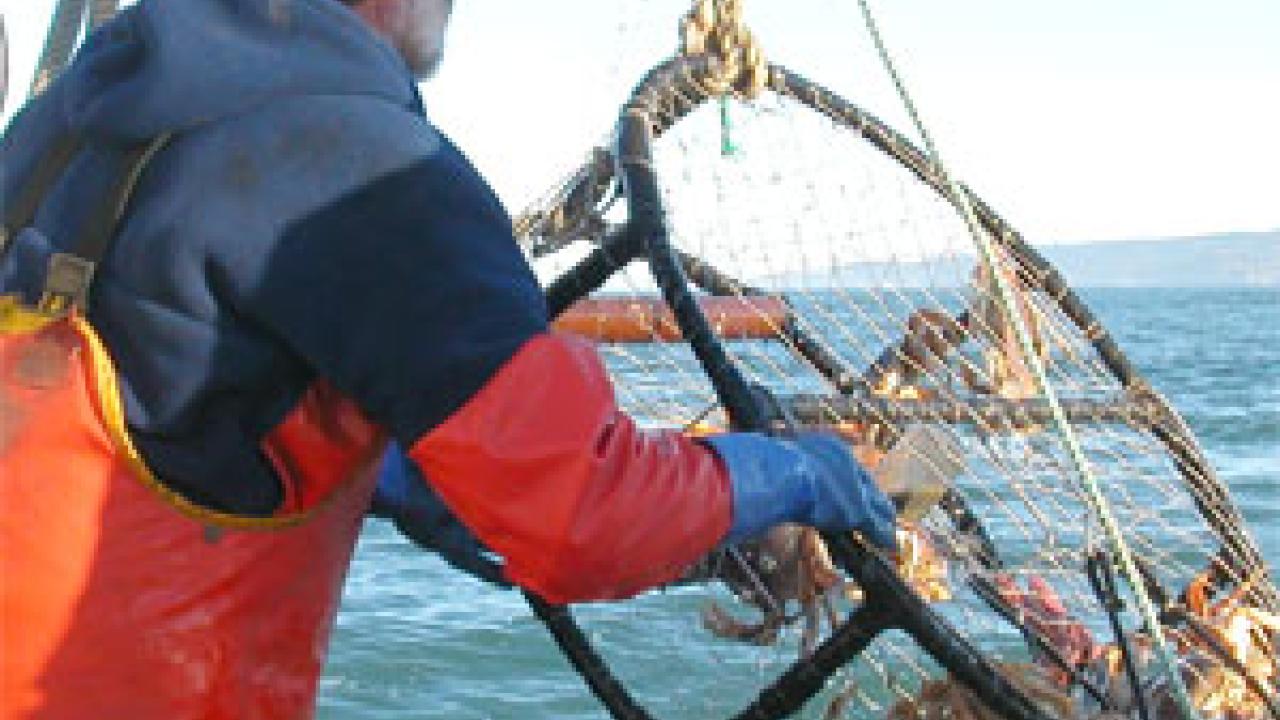Commercial season for Dungeness crab, now in its final weeks, has turned into a dangerous "derby" that captures most of the succulent crustaceans in the first six weeks of a seven-month season, according to UC Davis marine fisheries specialist Christopher Dewees.
"In recent decades the increasing number of vessels and the intensity of fishing has led to a race for crabs," Dewees said. "Before 1980, the season was spread from December to July. Now, in some years, 80 percent of the landings are made by the end of December. This creates glutted markets, increased densities of crab traps on fishing grounds, and fishing in dangerous conditions that costs lives and sinks fishing boats."
However, when Dewees surveyed California crab fishermen, he found support for only two of 12 suggested management options to address those concerns -- trap limits and daylight-only fishing. The majority of small vessel owners supported trap limits, but owners of vessels longer than 50 feet did not.
The California Legislature is currently considering a bill (AB 749) that would test a limit of 250 traps per vessel south of Mendocino for two years.
Dungeness crab ranges from Santa Barbara to Alaska. Despite highly variable harvests, most scientists and industry participants believe the crab resource is in good health. Catches in the 2003-04 and 2004-05 seasons have been among the highest ever, at about 25 million pounds landed, with a value of about $40 million.
Dewees is part of the statewide California Sea Grant Extension Program, which is administered by the University of California. Sea Grant is a network of 30 university-based programs with facilities and staff in every coastal and Great Lakes state. Activities are funded principally by the National Oceanic and Atmospheric Administration (NOAA) of the U.S. Department of Commerce, with matching funds from the individual states, and additional support from a variety of private sources.
Media Resources
Chris Dewees, Wildlife, Fish and Conservation Biology, (530) 752-1497, cmdewees@ucdavis.edu
